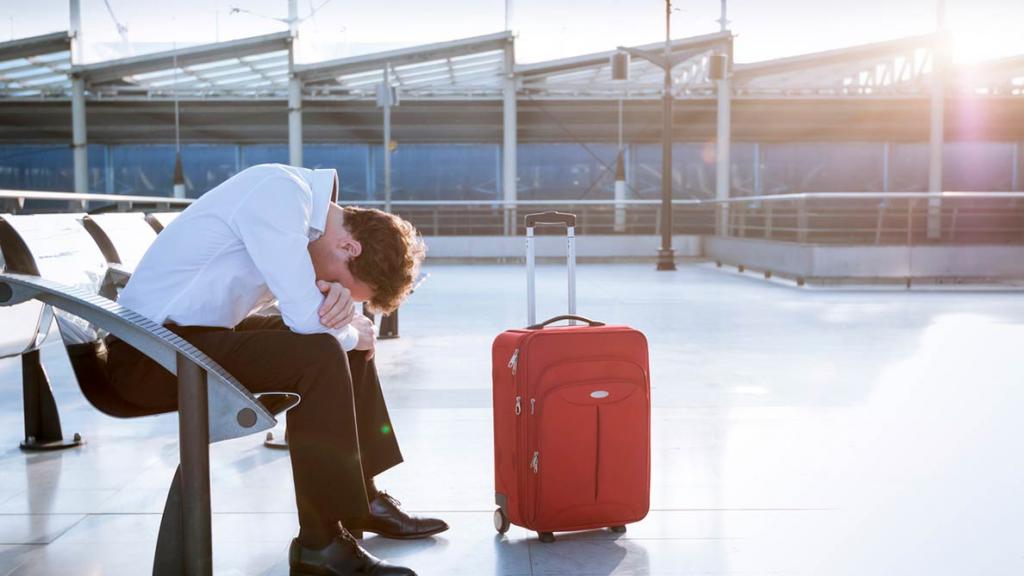Achieving a work/life balance within a managed travel programme

It is estimated that a third of the global workforce travels on business. As business travellers, they are vulnerable to common work-related stress factors such as heavy workloads and rapid-changing schedules.
They are also subject to factors unique to business travel; protracted absence from home and family, jet lag, poor sleep and diet. And yet, when companies try to reduce travel spend, it is usually the traveller who suffers the consequences.
Traditionally the impact of those stress factors on business travellers have not been discussed. But as business travel volumes increase, so too does the risk, propelling workplace mental health to the top of corporate agendas.

Employee wellbeing is becoming a priority for organisations worldwide. In part this is because employers have a legal duty of care to ensure the physical and emotional welfare of their staff members. Moreover, a healthy workforce is also a more productive one.
A travel programme that incorporates an effective workplace health programme will not only produce savings but also reduce absenteeism and health care costs.
That’s why travel managers are engaging with HR colleagues and external providers to understand the causes and effects of traveller stress, spot symptoms of depression and implement procedures to mitigate those risks.

Under-par performance, missing deadlines or meetings and uncharacteristic emotional outbursts are all symptoms of mental health problems. So too are social withdrawal and drinking too much alcohol.
The extent of the problem could be significant. New research suggests that up to 49% of business travellers have either been diagnosed with, or have shown symptoms of, mental illness. Of those, 63% have suffered depression, 44% anxiety and 29% stress.
In reality, this problem often goes un-reported. 80% of business travellers who have suffered mental health problems have not told their employer, so it’s no surprise that 74% of companies globally do not have a travel policy that includes supporting mental health.[1]
Further research has uncovered a worrying rise in risky behaviours amongst international business travellers. 76% of business travellers are less likely to have a balanced diet or exercise and 73% don’t get enough sleep. A similar number work longer hours while away from home.[2]
Then there’s the issue of safety. Almost half of business travellers would consider not travelling abroad on business if it took them to an unsafe location[3], although less than half of travel programmes include a risk management solution[4]. This is why travel managers are having to reassess their programmes to incorporate adequate safety measures to traveller wellbeing initiatives.
Most people seek a perfect work/life balance; few achieve it. To help, organisations are taking a wide range of steps to mitigate physical and mental health risks.
Some teach employees how to recognise stress factors in their lives and deal with them in a calm and effective way; others deploy formalised Employee Wellbeing programmes to reduce stress levels through healthy eating and exercise.
Confidential counselling for employees to discuss a range of issues, from general stress at work to problems at home and pre-placement medical assessments prior to travelling are further examples of the steps being taken.
However, these support networks are not available in every global region. For example, counselling is not readily available in some Asian countries, while mental health problems are stigmatised in others, so employers in the region have work to do if the balance is to be redressed.
So, what simple steps can a travel manager take to improve the physical and mental wellbeing of the organisation’s travelling workforce?
Here are some suggestions and tips:
1. Keeping them informed of any fight delays, disruptions or anything that, with advance warning, means extra stress is avoided. Your TMC should be able to provide traveller tracking and alert tools.
2. Daily exercise reduces stress, increases blood-flow, and helps travellers stay productive, so make sure your travellers can exercise while away by using hotel fitness centres or healthy menus.
3. Help and encourage travellers to maintain the same daily routine, even when away from home. This will give them a sense of home and encourage them to look after their own well-being.
4. Allow travellers to schedule some downtime to keep them productive – especially after the trip is over.
5. Provide advice on dietary choice and how eating the right things can enhance mental and physical performance.
6. Give your employees ways to destress – consider allowing an employee to return home early if circumstances allow.
7. When a traveller returns from a long-haul flight, write into the travel policy that they can work from home the following day.
Want to find out how FCM can help you with your corporate travel programme?
Fill in the form below and our team will be in touch...
[1]Business Travel & Mental Health Survey [2]International SOS Foundation/Kingston University/Affinity Health at Work [3]SAP Concur [4]GBTA